Table of Contents
ToggleWhen a state is forced to call in the National Guard, it means that assistance is needed to deal with civil unrest or to respond to the aftermath of a natural disaster. The troops arrive to bring greater law and order during times of extreme discontent or offer relief and medical aid to residents in need following natural events such as hurricanes.
But who calls them in? Who controls the national guard, and what does it mean to federalize them?
Who controls the National Guard?
In most circumstances, the National Guard is under the control of state governors and not the President of the United States. However, there are times when the President can call upon those involved in the National Guard to serve their country.
The issue of authority over the National Guard has led to some interesting disputes, including the issue of power in Washington DC.
Why Does the State Have Control Over the National Guard?
The main reason for state-level control over the National Guard is to ensure that these units serve their state as best they can. They are a vital lifeline in times of trouble, and the State Governor can call them into action to serve their states.
How Do National Guard Units Serve Their State?
There are two main ways that National Guard units help their state in times of crisis. The one that probably comes to mind first is the role of law enforcement. During times of civil unrest, the National Guard troops can come in to help patrol the streets and maintain curfews.
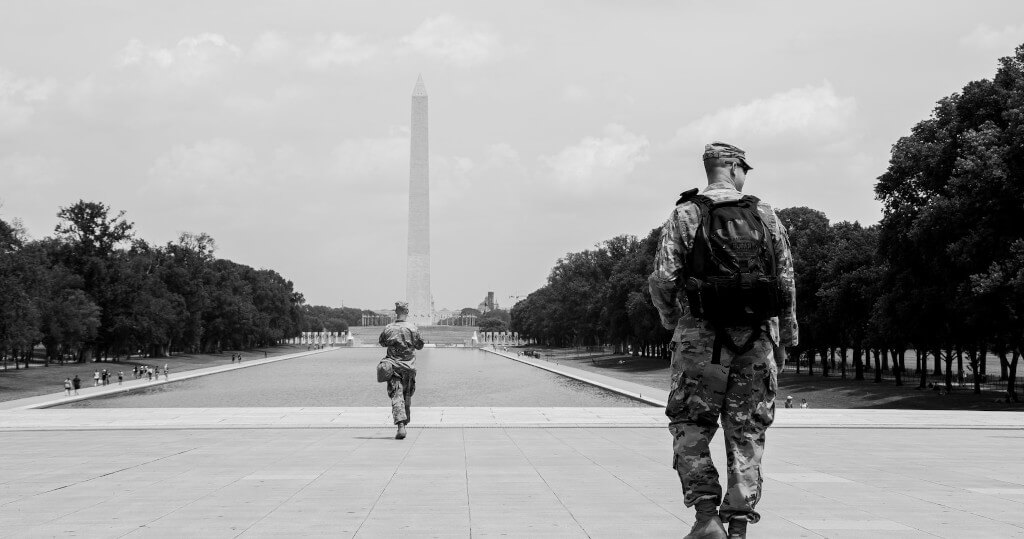
The other role is in the provision of aid during emergency situations. For example, National Guard personnel can gather and head to sites of hurricanes, floods, or wildfires to provide provisions for communities cut off or struggling. This is the lighter side of the National Guard we don’t always see so much about.
Why Does the Commander-in-Chief Have Federal Control Over the National Guard?
There is a need for a power structure where National Guard troops can fall under the authority of federal powers. This is to ensure that the President and wider National Guard Bureau can call upon these state reserve units in times of conflict.
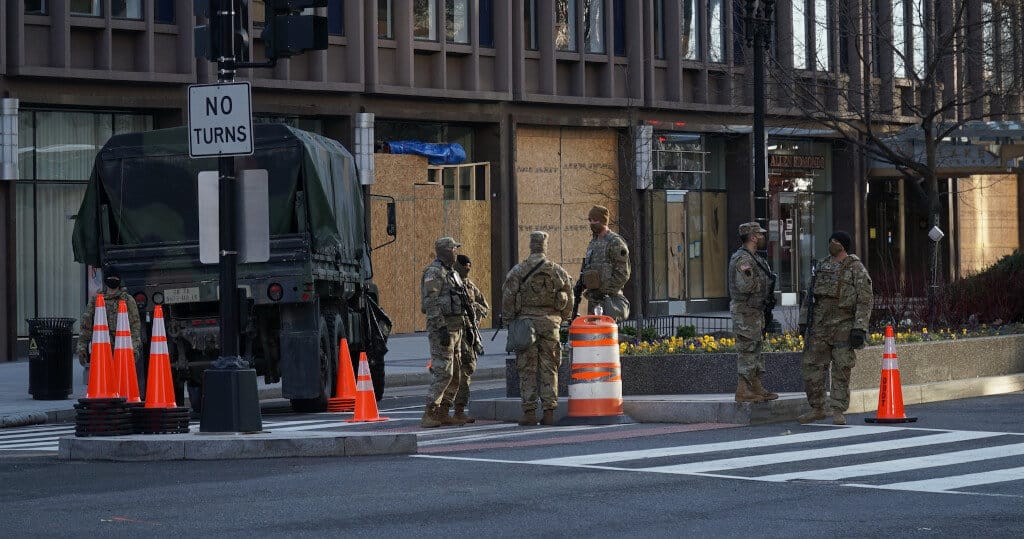
This is where the dual purpose of the National Guard is so important. Away from their state-level role as law enforcement and emergency relief providers, they are also a reserve unit for the armed forces.
Therefore, if the United States were to end up in a major conflict, these National Guard members could make up the numbers.
What Is the Insurrection Act?
The Insurrection Act is a vital piece of legislation ensuring that the President of the United States can federalize the National Guard as needed. The act was signed in 1807 to allow the president greater powers.
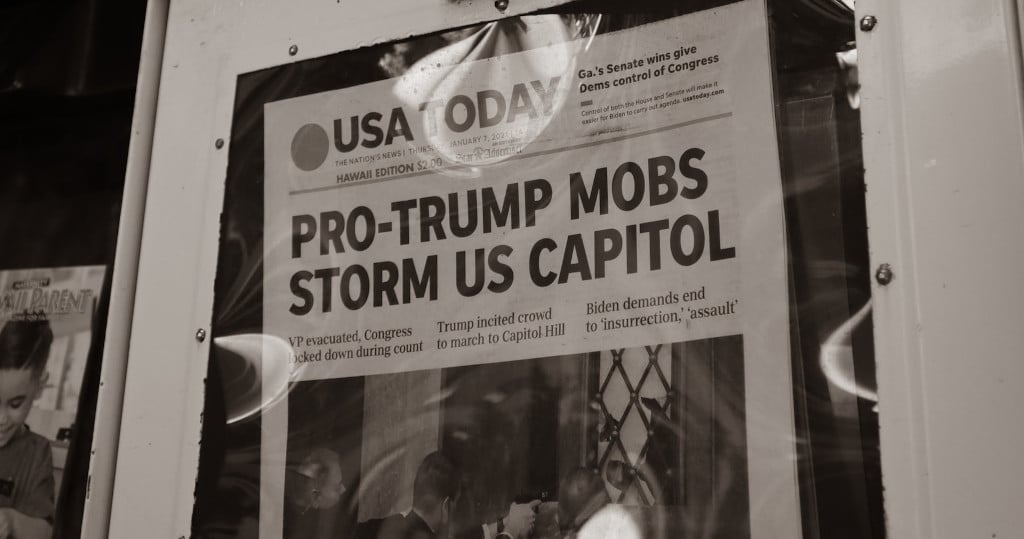
The benefit of this is the ability to gain national control over troops, prevent abuses of power, and allow for National Guard members to help the national armed forces. However, there are also concerns that the President could abuse this right themselves.
Can the President Make a Governor Call In the National Guard?
Sometimes, the president will urge a State Governor to call in the National Guard personnel to deal with a situation.
They may feel that failure to do so would undermine the party’s position or put people at greater risk. But, the governor has the right to refuse and can wait until they believe the time is right.
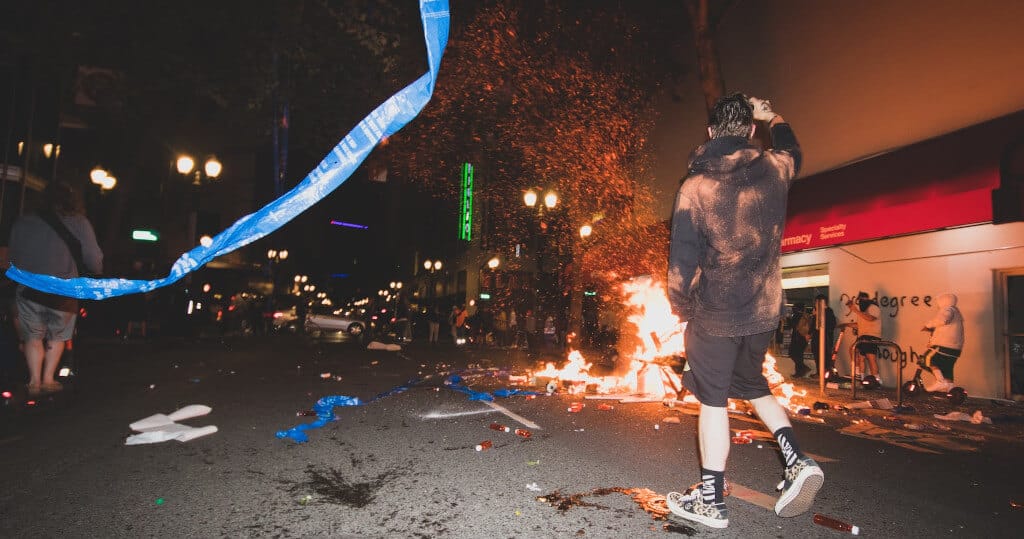
For example, in 2020, President Trump urged Portland officials to use the state’s National Guard to handle unrest during protests.
There were concerns at the time that Trump wanted to be heavy-handed with the National Guard to bring down Antifa protestors rather than as a means of protection.
In other situations, the president has refrained from weighing in on state-based decisions to allow the State Governor to use the National Guard in the most suitable way.
Can the President Intervene To Call Off the National Guard?
Then there is the other side of the situation, where a State Governor could be seen as abusing their power by using the state National Guard.
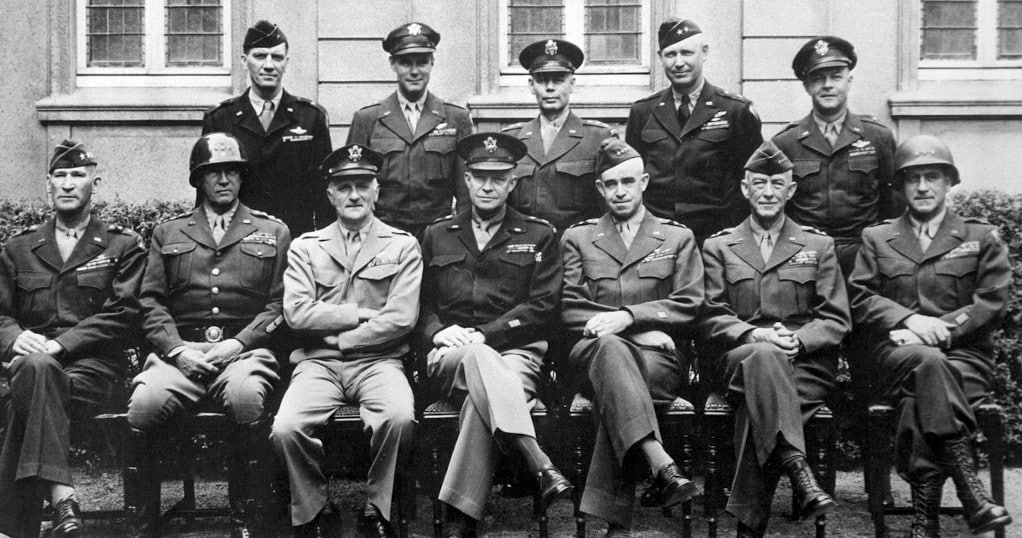
At this point, the president could intervene to federalize the whole National Guard of that state, bring them into their command, and remove them from the situation.

Get Smarter on US News, History, and the Constitution
Join the thousands of fellow patriots who rely on our 5-minute newsletter to stay informed on the key events and trends that shaped our nation's past and continue to shape its present.
This is what happened in 1957 in Arkansas. The State Governor decided the National Guard was the perfect tool for enforcing segregation in Little Rock High School. President Eisenhower used his authority to take command, bring the 10,000 members under his rule, and stop the plan.
Who Controls the National Guard in DC?
The use of the National Guard in Washington DC is a slightly different matter, as D.C. is not a state. This means it doesn’t have the same state constitution and governance you see in neighboring areas like Maryland and Virginia.
As a result, there is no state governor in D.C. to call on the National Guard in times of crisis.
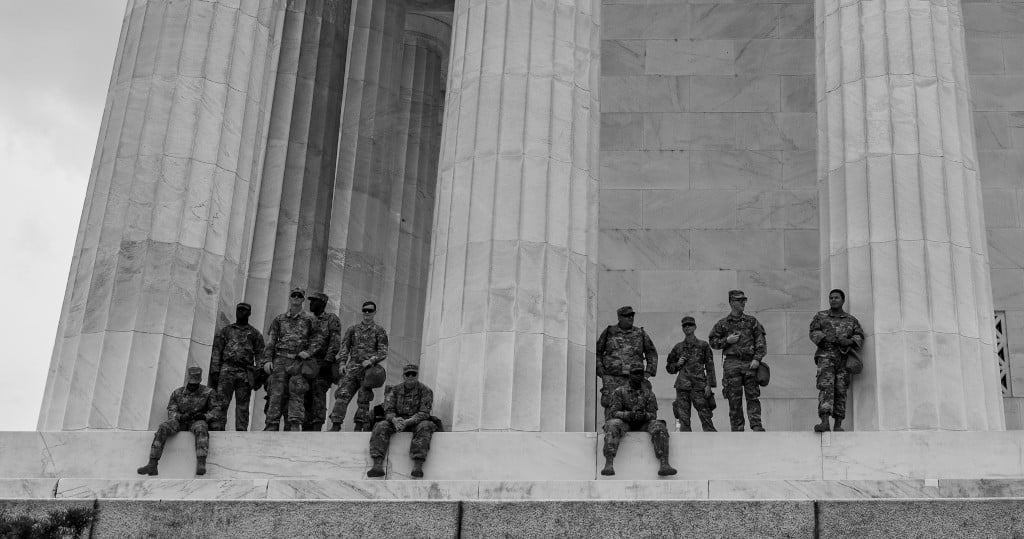
Because of this, the power to control the National Guard in D.C. falls to the commander-in-chief for the region – who happens to be the president in the White House – as well as the Secretary of Defense.
The Secretary of Defense gained this power by Executive Order in January 1949, allowing them to direct the National Guard in state matters such as law enforcement and emergency situations. There are calls to place authority over the DC Guard in the hands of the D.C. mayor instead.
The Impact of the DC National Guard
The D.C. National Guard has been influential in recent years despite its status. It helped coordinate efforts during the Black Lives Matter Protests in 2020, which involved units from other states, police, and first responders.

The DC National Guard was also brought into action during the infamous January 6th storming of the Capitol.
Control Over the National Guard Is Complex
Essentially, no single department or person has absolute power over a National Guard unit. The State Governor is largely responsible for their actions in state affairs, such as emergencies and law enforcement.
But, the president will always have the power and Insurrection Act to federalize the troops as needed.
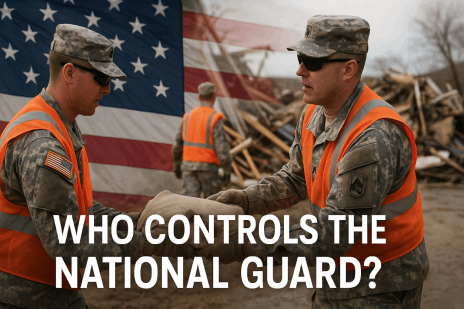
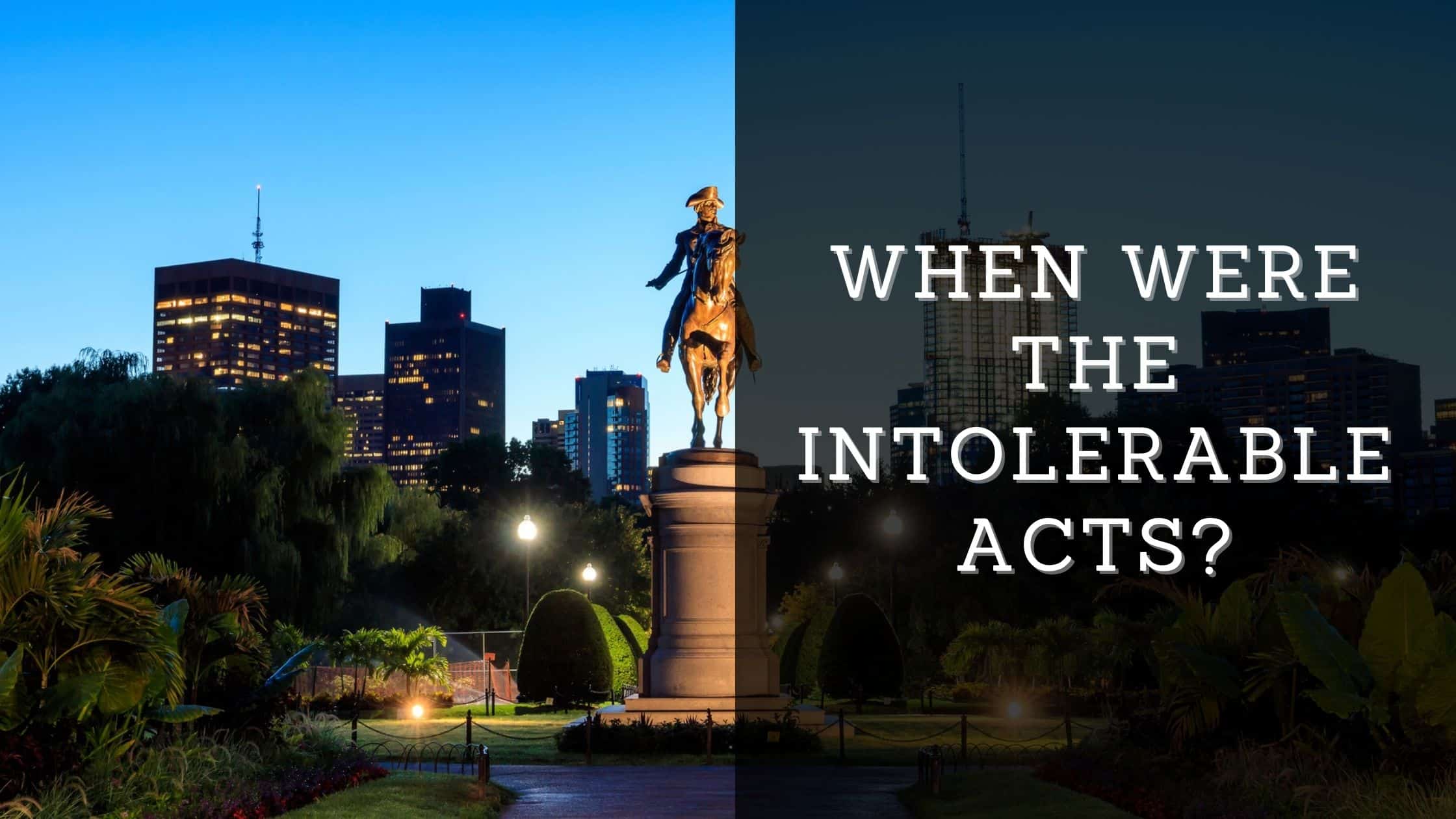
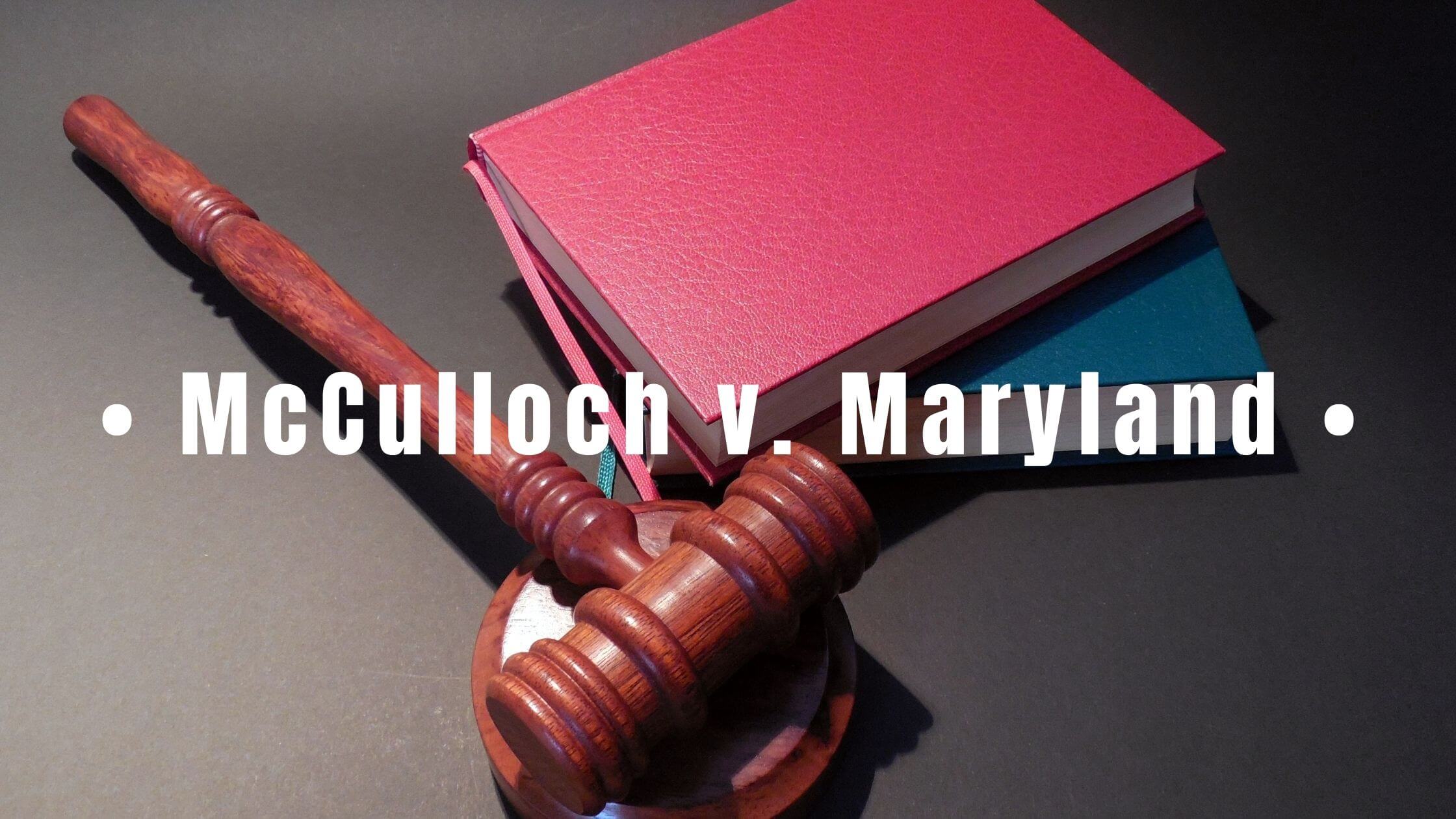
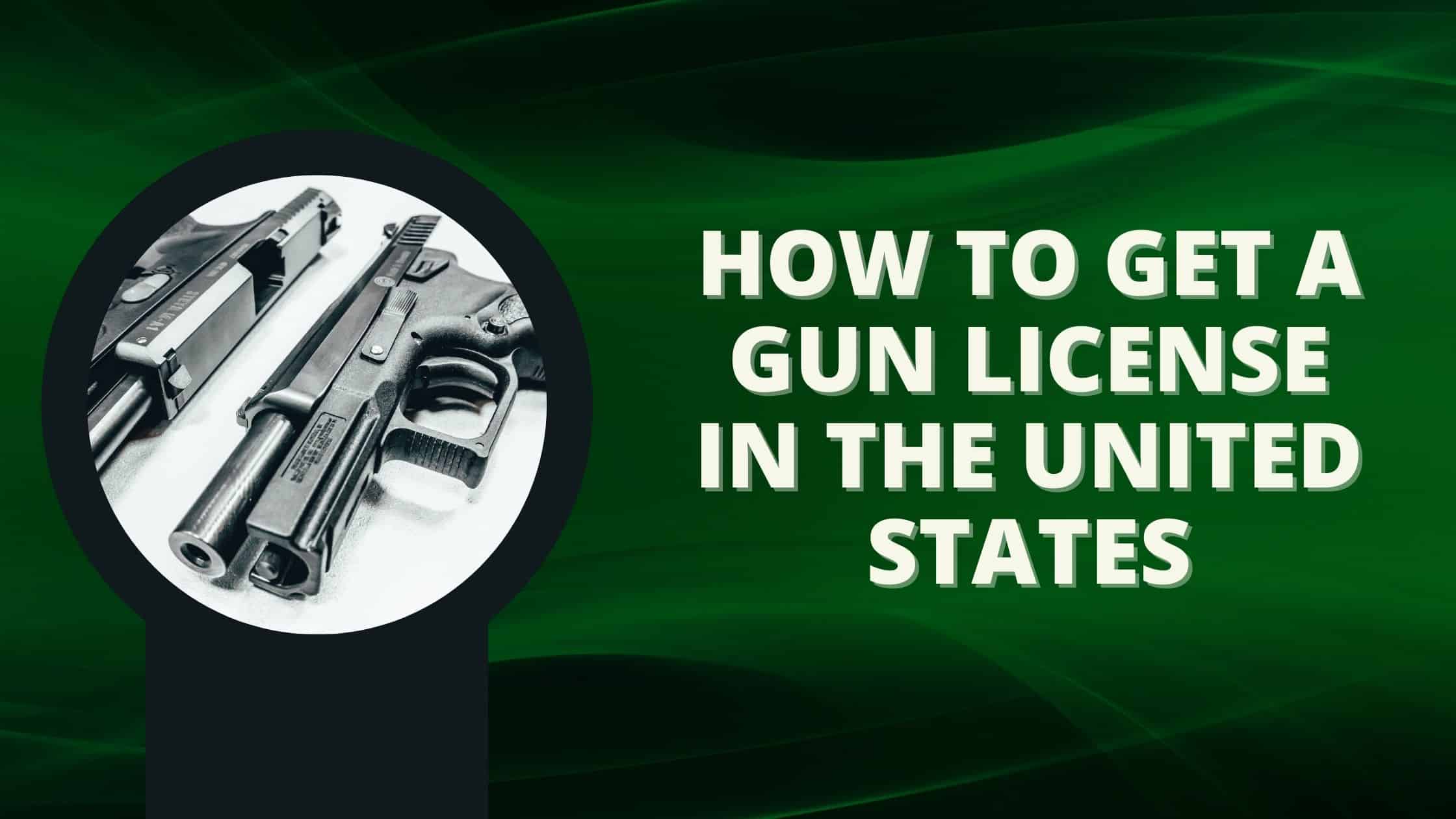








7 Responses
My favorite Democratic President was John F. Kennedy (I don’t give a hoot who he slept with). He gave us one of a few truly great quotes. It goes something like this. “Ask not what your country can do for you, but what YOU CAN DO for your country.” Another truly amazing quote came from Thomas Jefferson. “Government is a necessary evil.” Our founders believed that because they’d all seen what happens when a government becomes too powerful. Every American should be 100% behind these quotes. They reveal the essence of the American democracy. We’ve strayed from these beliefs–that is the root of our problems.
How and who will control Donald Trump, his grandiose outbursts of delusional outbursts . Yes I am Canadian but not beyond the affect trump’s behaviour will have on us.
Perhaps you should pay for your own military instead of free-loading off of ours. Canadians are not as grateful as they should be to the United States.
I had often wondered who had greater authority over the National Guard. Was it the President or the Governor? If a Brigider General of the National Guard was given an order by the President , and the Governor countermandated it, who would he listen to? Just a thought. I believe the State Militia answered to the Governor which limited Federal authority. During the Civil War, the Confederacy was made of the State Militas from each of states that joined the confederacy.
destroying property and attacking law enforcement ends the whole peaceful protest lie. you must make an example of the violent protesters. assaults on LEOs especially Federal officers are felony offenses. prosecute them and Make Protests. Peaceful Again.
We have a president who pardoned the people who committed a violent protest to overturn a valid election. I don’t know how we were so stupid to elect him after that. But you can’t be surprised at what he’s doing now.
We are not a democracy. We are a Federal Constitutional Republic. The founders rejected Democracy as a form of Government.